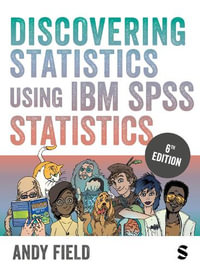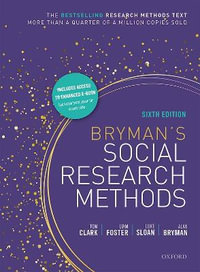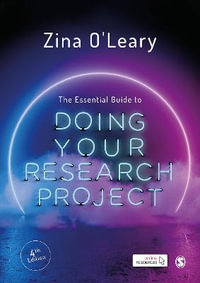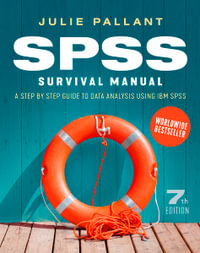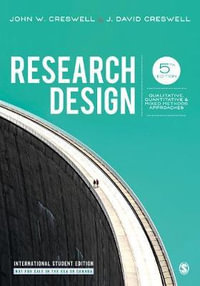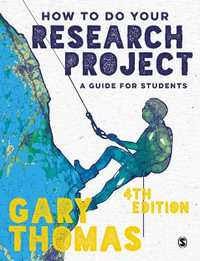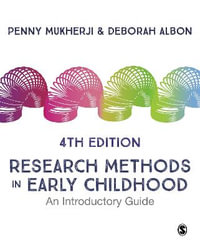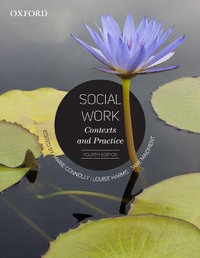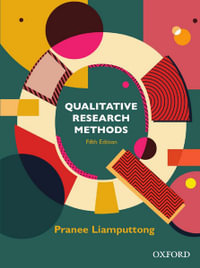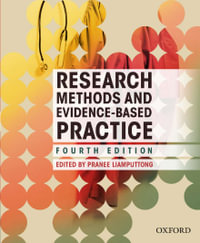
The Experience of Human Communication
Body, Flesh, and Relationship
By: Frank J. Macke
Hardcover | 13 February 2015
At a Glance
Hardcover
RRP $253.00
$156.75
38%OFF
Aims to ship in 5 to 10 business days
When will this arrive by?
Enter delivery postcode to estimate
Industry Reviews
Macke clearly ties together all that he has been quoting, questioning, and theorizing in a way that allows the reader to understand how each of the preceding chapters participates in his ultimate goal of inserting humanness into a field where academic and theoretical thinking has taken control, and offering an intelligent and much-needed inaugural study to inspire continual change in communicology today. * International Journal of Communication *
Frank Macke's book has enormous implications for the human and social sciences generally and for study of communication in particular. The text is a fresh, bold, intellectually challenging, and at times courageous critique of our taken-for-granted social connections and psychological attachments and the disciplines by which we have heretofore repressed or superficially understood these experiences. This is a work of vitality, of embodied corporeality, and it is about the same. Macke's book has the potential to radically alter communication as a concept and field of endeavor. -- Isaac E. Catt, Isaac E. Catt, Visiting Scholar, Simon Silverman Phenomenology Center at Duquesne University, Fellow, International Communicology Institute, and co-editor, Communicology: The New Science of Embodied Discourse
Frank Macke offers a thoughtful examination of a communication theory that unites evidence and ambiguity. Macke articulates communicology as a human science that dwells within the interplay of everyday human existence, unwilling to retreat into a realm above the fray of humanity. Macke contributes significantly to our understanding of communication with this volume. -- Ronald C. Arnett, Duquesne University, author of Levinas's Rhetorical Demand: The Unending Obligation of Communication Ethics
Professor Macke asks an embarrassing question: Where is the "human" in communication taught in the American classroom and experienced in the typical family? Cutting through decades of superficial talk about "sharing messages," he then asks an old fashioned question: What's the point of talking? With extraordinary clarity and precise scholarship, he helps us understand the psychology of how we come to embody a sense of self-worth and why that emotion matters in the shared community of speech around us: family, friends, strangers. The Experience of Human Communication is a "must read" answer for everyone with a positive interest in today's society and culture. -- Richard L. Lanigan, Director and Fellow, International Communicology Institute, Washington, DC, and University Distinguished Scholar and Professor of Communicology, School of Communication, Southern Illinois University
We're so used to saying that 'one cannot not communicate.' Frank Macke challenges this maxim: we can not communicate-look around you, see how people try to connect with one another, only to fail. The thrust of Frank Macke's book is de-structuring and transformative: he takes the suppressed potential of communication understood scientifically and helps to unbracket and liberate it as expressed relationality. In this thought-provoking work, Macke provides insights into the human communicative experience and advances the science of Communicology. Anyone who reads this book will find it a transformative and richly rewarding experience. -- Igor E. Klyukanov, Professor of Communication Studies, Eastern Washington University
ISBN: 9781611475487
ISBN-10: 1611475481
Series: The Fairleigh Dickinson University Press Series in
Published: 13th February 2015
Format: Hardcover
Language: English
Number of Pages: 258
Audience: Professional and Scholarly
Publisher: ROWMAN & LITTLEFIELD PUBLISHERS
Country of Publication: GB
Dimensions (cm): 15.8 x 23.2 x 2.2
Weight (kg): 0.43
Shipping
| Standard Shipping | Express Shipping | |
|---|---|---|
| Metro postcodes: | $9.99 | $14.95 |
| Regional postcodes: | $9.99 | $14.95 |
| Rural postcodes: | $9.99 | $14.95 |
How to return your order
At Booktopia, we offer hassle-free returns in accordance with our returns policy. If you wish to return an item, please get in touch with Booktopia Customer Care.
Additional postage charges may be applicable.
Defective items
If there is a problem with any of the items received for your order then the Booktopia Customer Care team is ready to assist you.
For more info please visit our Help Centre.
You Can Find This Book In
This product is categorised by
- Non-FictionReference, Information & Interdisciplinary SubjectsInterdisciplinary StudiesCommunication Studies
- Non-FictionPsychologyPsychological Theory, Systems, Schools of Thought & ViewpointsHumanistic Psychology
- Non-FictionLanguage & LinguisticsLinguisticsPhilosophy of Language
- Non-FictionSociology & AnthropologySociology
- Non-FictionPhilosophyHistory of Western PhilosophyWestern PhilosophyPhenomenology & Existentialism
- Non-FictionReference, Information & Interdisciplinary SubjectsResearch & InformationResearch Methods

